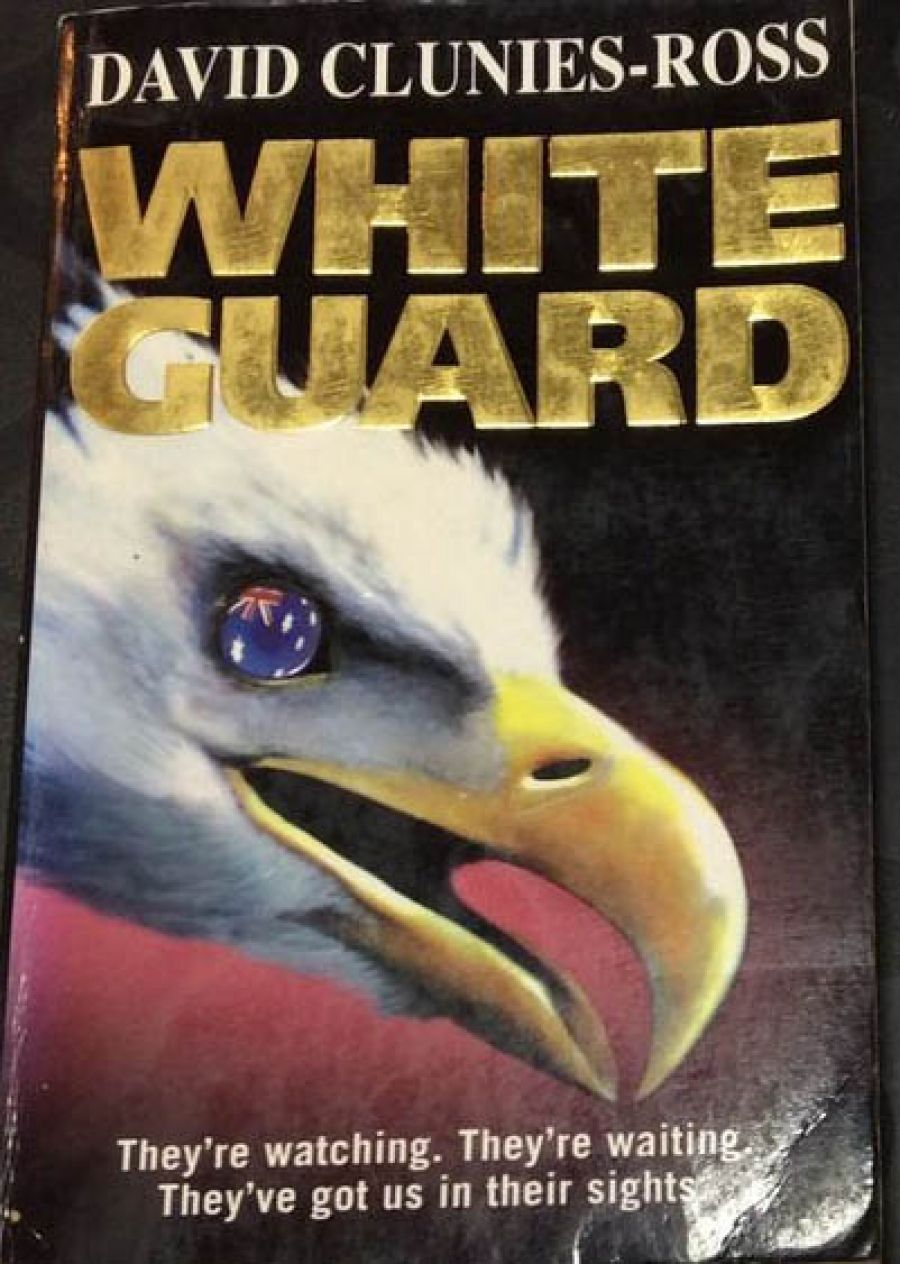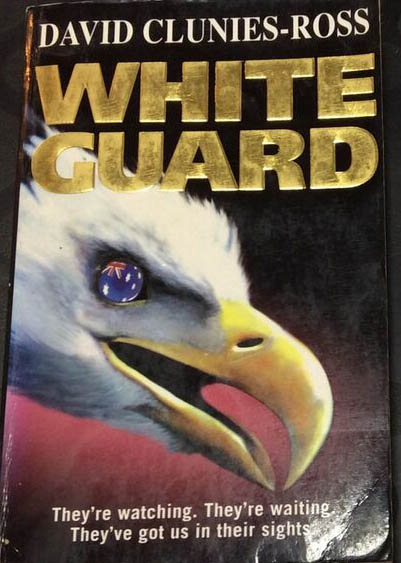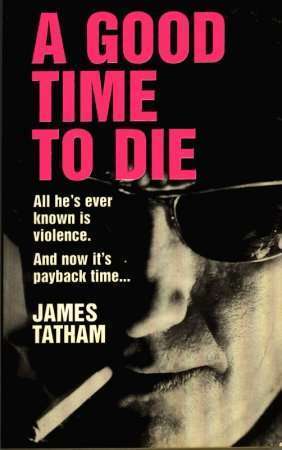
- Free Article: No
- Contents Category: Fiction
- Review Article: Yes
- Article Title: Clunies-Ross' political thriller
- Online Only: No
- Custom Highlight Text:
David Clunies-Ross came under notice last year with Springboard, a darkly intriguing thriller about power, corruption and murder in Hong Kong at a nervous time in the colony’s history, with the Chinese takeover looming. In White Guard he seems to have used the same ingredients to assemble a similar scenario about Australia on the brink of becoming a republic as the year 2000 approaches. Domestically, the country’s politics are in disarray, bringing to mind the constitutional crisis of 1975. Couldn’t happen again, could it? Simultaneously, superpowers are competing in a deadly game of brinkmanship that shows up the threat to this country’s very existence in the form of US communications bases at Pine Gap, Nurrungar and the North West Cape – But Skinner’s position is clearly untenable: he has put the US offside by threatening not to renew leases for its tracking bases, right on the eve of a major joint military exercise in the outback; the Opposition is hugely popular with voters and Skinner has a sex scandal hanging over his head which will destroy him if it gets in the papers. Something’s got to give, but Skinner’s determined to hold on to power no matter what, as politicians invariably are for some reason.
- Book 1 Title: White Guard
- Book 1 Biblio: Mandarin, $13.95 pb, 347 pp
- Book 1 Cover Small (400 x 600):

- Book 1 Cover (800 x 1200):

- Book 2 Title: A Good Time To Die
- Book 2 Biblio: Pan $12.95 pb, 473 pp
- Book 2 Cover Small (400 x 600):

- Book 2 Cover (800 x 1200):

And so the jockeying, plotting and blackmailing proceeds apace; ASIO is involved, as is the CIA, which regards Australia as a Third World backwater in need of some straightening out, like Chile, say, or some of those troublesome Central American dungheaps. Clunies-Ross is strong on political, diplomatic and military detail, making the plot and main players disturbingly believable. It’s soon apparent that the Americans are holding all the cards: under cover of the joint exercise the military bigwigs in Washington work out what they’re really going to do if the Aussies want to play hard ball, and soon planeloads of crack airborne troops are landing in the desert.
Hard case embittered by a cruel upbringing who turned to a life of organised crime and killing. It was a savage story, raw but compelling in its amorality. It read like the true confessions of a mafia hitman. Now Jimmy is back in A Good Time To Die. It seemed that he had cleared the decks of most of his enemies in the first book, but apparently there are plenty more. The story opens with a bang: Jimmy and his girlfriend Carmel are living in peace in the outback when they are attacked by a helicopter, forcing them to run for their lives - back to the big smoke and the old life. Jimmy is not one to cop this.
A Good Time To Die is about revenge, and its message seems to be that once you start out in the killing game there’s no end to it. Jimmy constantly speaks of love, yet his life is shaped by old hatreds and his hands are awash with blood. Fortunately he is able to enlist the services of two old army mates, Percy, who is now a big banana in ASIO, and Jacko, who is only too happy to get into a shooting war again. In the course of the story they manage to fill several cemeteries between them, but it’s never over till it’s over, and Percy, who is a treacherous obvious primary targets in the event of nuclear war. What other independent nation in the world would allow a foreign power – even an ostensibly friendly one – to exercise such absolute sovereignty over its own turf, without even the right to know what the facility is actually doing? But of course we have a history of that, going back to Maralinga. It’s a nagging, vexing question, and one raised with considerable dramatic force in White Guard.
The year is 1998; Eric Skinner, the Labor Prime Minister, is being thrashed at the polls. Remembering what happened to Whitlam in 1975, he decides to get in first by asking the Governor-General to extend his term, effectively establishing a dictatorship under the rule of a republic.
That’s bad enough, but against this we have a high-tech submarine cat and mouse game going on in our waters as the cold war rears its head again. Again, the threat is real; nuclear subs do roam the oceans, tracking each other and testing the latest gear at their disposal. Who’s to say an incident won’t occur, caused perhaps by a misunderstanding or an unhinged, fanatical skipper, as we have seen happening in doomsday movies like Strangelove, Failsafe and The Bedford Incident? This is certainly engrossing stuff, right on target and as good an international thriller as anything by Forsythe or Follett.
In Kiss Tomorrow Goodbye James Tatham introduced Jimmy Diamond, a sod, doesn’t mind a spot of blackmail to persuade Jimmy to do some moonlighting for him. His exploits even take him to the States, where he very quickly locks horns with the local hoods in a way that makes Les Norton look like a model ambassador.
This is a relentless story, uncompromisingly tough and brutal. It’s also crowded and a bit long- I thought there was enough material here for two books, not one. As for Jimmy Diamond, it’s hard to imagine where he goes from here. There is a neat escape hatch organised at the end, but somehow he doesn’t strike me as the kind of guy who is going to be allowed to live in peace for long.


Comments powered by CComment